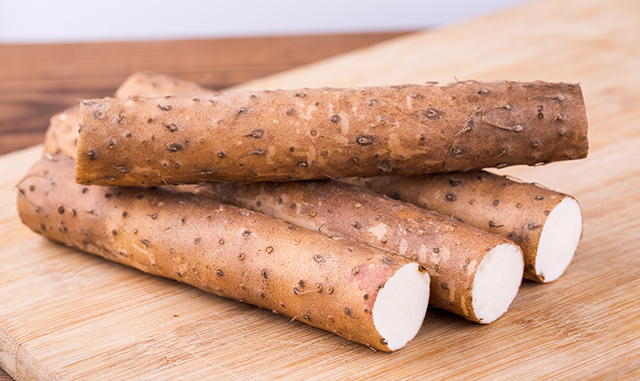 Parler
Parler Gab
Gab
- A new clinical trial found 5:2 intermittent fasting (5 days normal eating, 2 days restricted calories) significantly lowers fasting blood glucose, improves insulin sensitivity, and trims triglycerides better than time-restricted eating or daily calorie counting.
- 85% adherence rate—people stuck with it longer than other diets, proving sustainability.
- Fasting triggers autophagy, the body’s way of recycling damaged cells, reducing inflammation, and rebooting metabolism.
- Late-night eating destroys circadian rhythms, fueling obesity and diabetes—skip midnight snacks.
- The study confirms ancestral eating patterns—fewer meals, longer fasting—outperform modern "three meals plus snacks" dogma.
The fall of modern eating
For decades, nutrition "experts" have insisted three square meals plus snacking keeps metabolism humming. They were dead wrong. As obesity and diabetes skyrocketed, science circled back to the eating rhythms of our hunter-gatherer ancestors—irregular meals, seasonal scarcity, and extended fasts. Unlike today's carbohydrate-loaded, insulin-spiking diets, their feast-and-famine cycles optimized cellular repair. Now, hard data from The Endocrine Society vindicates fasting. In the trial, diabetics following the 5:2 plan saw greater drops in fasting glucose and triglycerides compared to those squeezing meals into 10-hour windows (time-restricted eating) or nibbling at calorie cuts all week. Why? Fasting resets insulin receptors, giving exhausted pancreases a break. The study’s lead researcher, Dr. Haohao Zhang, admits fasting isn’t just viable—it’s superior, yet clinics still default to pills over primal eating. The sad irony of mainstream treatments? Insulin injections ultimately worsen insulin resistance, trapping patients in dependency. Meanwhile, fasting reboots metabolism without a single prescription. But who profits if diabetes vanishes?Autophagy helps with metabolic disorders like Type 2 diabetes
Autophagy is a cellular self-renewal process essential for maintaining metabolic balance, particularly during nutrient stress or energy scarcity. By degrading and recycling damaged organelles (e.g., mitochondria, ER), toxic protein aggregates, and pathogens, autophagy acts as a critical quality control mechanism. While traditionally viewed as a survival pathway, dysregulation of autophagy is implicated in metabolic disorders, including type 2 diabetes (T2D). Emerging research highlights autophagy as a key regulator of glucose homeostasis and insulin sensitivity. In pancreatic β-cells, selective autophagy maintains proper function by eliminating malfunctioning mitochondria and protein aggregates, ensuring efficient insulin secretion. Conversely, impaired autophagy in insulin-sensitive tissues (liver, muscle, adipose) leads to the accumulation of damaged cellular components, promoting inflammation and insulin resistance—a hallmark of T2D. Studies show that enhancing autophagy through calorie restriction, exercise, or pharmacological agents improves glycemic control by restoring metabolic efficiency and reducing oxidative stress. Beyond metabolic regulation, autophagy suppresses cellular senescence, prevents necrosis, and mitigates genomic instability, underscoring its broader role in protecting against diabetes-related complications such as cardiovascular disease and neurodegeneration. This review synthesizes current insights into autophagy’s molecular mechanisms and how its dysfunction contributes to disease, emphasizing its therapeutic potential in managing T2D.Midnight snacking: A silent killer
The University of Georgia discovered another critical trigger with diabetes: late-night eating destroys gut health, triggering metabolic chaos. When insulin spikes overnight, digestion disrupts sleep, sabotaging fat-burning and hormone balance. "Instead of resting, your GI tract labors to digest, leaving you fatigued," said Dr. Krzysztof Czaja. Skip midnight raids on the fridge, and autophagy cleans house—burning fat stores, scrubbing inflamed cells, and repairing mitochondria. The science is undeniable:- Fewer meals lower insulin, preventing diabetes.
- Fasting activates autophagy, flushing toxins.
- Late-night eating spikes obesity risk—cut it.
Herbs from India’s tribal pouch: Ashwagandha
By News Editors // Share
The obesity paradox: Why Americans are fitter – and fatter – than ever
By Ava Grace // Share
Yarrow: The ancient herb of healing and resilience
By Ava Grace // Share
Wormwood: A bitter herb with incredible healing potential
By Ava Grace // Share
Governments continue to obscure COVID-19 vaccine data amid rising concerns over excess deaths
By patricklewis // Share
Tech giant Microsoft backs EXTINCTION with its support of carbon capture programs
By ramontomeydw // Share
Germany to resume arms exports to Israel despite repeated ceasefire violations
By isabelle // Share










